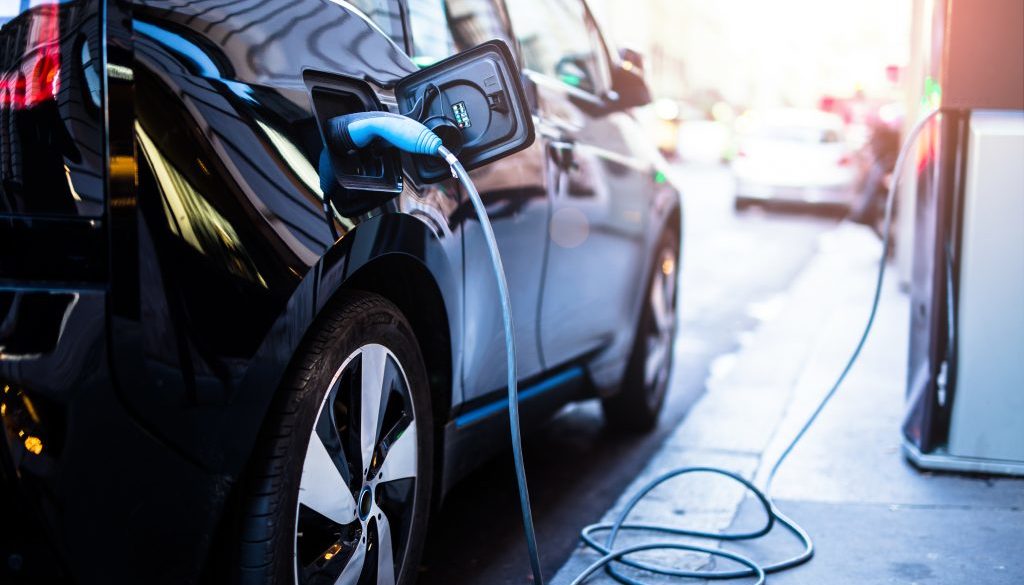EPA Head Lies About Fuel Economy Fines in Push for Weaker Car Standards
By Dave Cooke, Union of Concerned Scientists
In an interview with Bloomberg Media on February 4th, EPA Acting Administrator Andrew Wheeler stated that manufacturers have paid $77 million in fines for not complying “with the current Obama numbers,” going on to say that “it’s incorrect to say that the automobile manufacturer can comply with the Obama numbers. We want a more realistic number.”
In waging this war on “the Obama numbers”, Andrew Wheeler is waging a war on facts in order to increase pollution from passenger cars and trucks and force consumers to pay more at the pump, lining the pockets of the oil industry with whom he has met repeatedly in his short tenure at EPA.
Fiat-Chrysler is paying a fine…for repeating history
One part of the story is correct: Fiat Chrysler is paying $77 million in fines as a result of the inefficiency of its 2016 model year fleet. However, this fine is not because they aren’t in compliance the critical and important standards set under Obama (in fact, they are). Instead, Fiat Chrysler is paying a fine for violating a Congressional law meant to prevent the very actions which set in motion the bailout of Chrysler!
In the 2000s, Chrysler and other domestic manufacturers had invested heavily in SUV and light truck production in the United States, essentially ignoring investment in passenger cars. When oil prices rose, they were completely unprepared for the market shift away from these big gas guzzlersand towards the more efficient passenger cars made by their competitors. The result of this negligence were massive layoffs of domestic workers.
In 2005, General Motors announced the closure of 12 manufacturing plants, resulting in the loss of 30,000 jobs across North America. In 2006, Ford announced eliminations of up to 30,000 jobs and 14 factories. In 2007. Chrysler announced cuts to 13,000 jobs in North America and at least partial closures of 4 plants. This massive economic catastrophe was the result of a business strategy that ignored the possibility of a changing market and the inherent fluctuations resulting from a volatile oil market, putting short-term profits over smarter, longer-term investments.
Congress says enough is enough
The long-reaching impact of these lay-offs is apparent in Michigan today, even as many of these jobs have returned. And in 2007, Congress sought to put an end to the detrimental behavior that cost the public so much.
In the 2007 Energy Independence and Security Act (EISA), Congress set a mandatory limit for a manufacturer’s domestically produced passenger car fleet—no longer would a manufacturer be allowed to ignore investment in a robust portfolio of efficient vehicles produced in North America. In order to make sure the bailouts, layoffs, and economic turmoil brought about by shortsighted investment strategies, the law requires that every manufacturer’s domestically produced passenger car fleet achieves an average fuel economy no more than 8 percent worse than the average car sold in the United States. .
Fiat-Chrysler tells the American people: We don’t care
In 2007, Congress tried to prevent future crises by passing EISA. And in 2008, the American taxpayer bailed out Chrysler and General Motors, assuming that these companies had learned their lesson. But just seven years later, Fiat Chrysler flaunted the requirements set out by Congress to avoid another bail-out and protect American jobs.
In 2015, Fiat Chrysler knew that it was going to fall well short of the requirements on North American production of efficient passenger cars. Yet in 2016, the company doubled down on its strategy, not only refusing to improve the efficiency of its domestic fleet but scrapping production of its most efficient vehicles entirely. This was a conscious and deliberate choice to ignore Congress and the goodwill of the American people in bailing out the failing company by repeating history. The penalty for doing so was a $77 million price-tag they were willing to pay.
Fiat-Chrysler is being fined because they are falling short of their competitors and focusing on short-term gains in place of long-term investment, exactly the behavior the law they broke was meant to combat.
EPA wants you to believe that manufacturers can’t meet standards…and so does Fiat Chrysler
Andrew Wheeler’s EPA is in the process of undoing the regulations that have continued to make vehicles of every size and type more efficient. He’s already claimed ridiculous things about the impacts of these rules, but now he’s adding a new weapon in his quest to harm American consumers: lying about whether manufacturers are in compliance with these standards.
In fact, the document published by NHTSA disclosing these fines shows quite clearly that manufacturers continue to comply with the CAFE program. Even his own EPA shows that manufacturers continue to comply with the program, in part by using credits earned for exceeding expectations in the early years to buy more time to comply with the harder future standards, for which they’ve prepared a number of widespread developments, whether that’s mild hybridization of some of the largest vehicles on the road, deployment of dozens of new electric vehicles, or just the “holy grail” of internal combustion engines.
Fiat Chrysler has been quite clear about how it feels about regulations—it would rather pay the U.S. government fines than provide customers with efficient options. And it has lobbied Andrew Wheeler for a dramatically weaker program in order to continue doing so. But one company’s strategic indifference to fuel economy improvements are not justification to rollback a program that is cutting global warming emissions, reducing our use of fossil fuel, and saving consumers billions at the pump.

